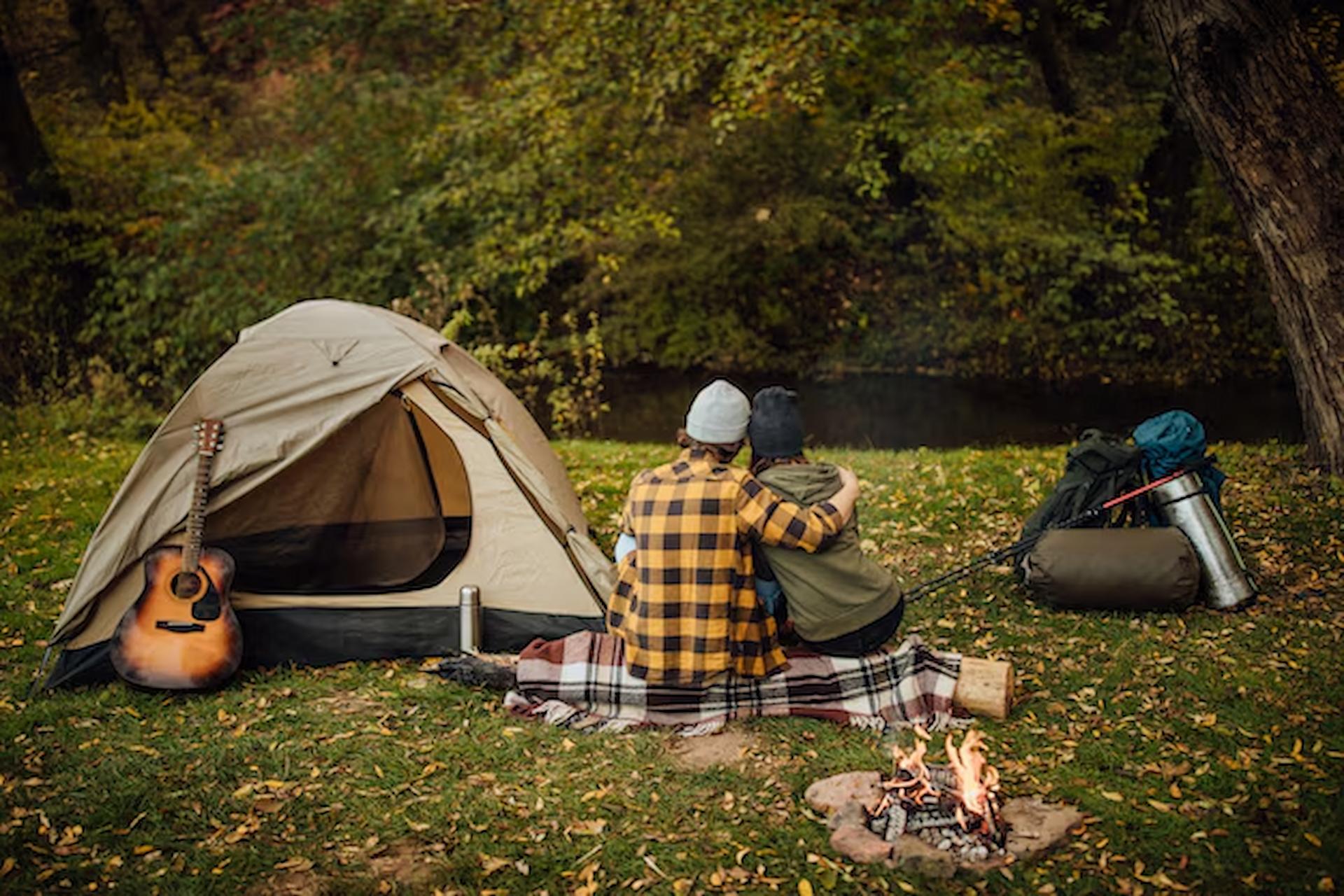Planning a camping trip doesn’t have to be expensive or stressful. With these tips, you’ll enjoy a memorable adventure without breaking the bank.
Camping is an excellent way to reconnect with nature, unwind, and create lasting memories with family or friends. However, a fun camping experience requires a hefty budget. With thoughtful planning and creativity, you can have an unforgettable camping trip while staying within your budget. This guide will walk you through every step of planning a budget-friendly camping trip, from choosing the perfect location to saving on gear and meals.
1. Choose an Affordable Destination
Finding the right camping spot is the foundation of your trip.
- National or State Parks: These parks often offer low-cost or free campsites.
- Local Campgrounds: Look for less popular local sites that offer amenities without high costs.
- Backyard Camping: If you’re tight on budget, camping in your backyard can provide a similar experience without travel expenses.
2. Plan and Pack Smartly to Save on Gear
Camping gear can be expensive, but there are ways to save.
- Rent or Borrow Gear: Instead of buying new, borrow essentials like tents or sleeping bags from friends or rent from outdoor stores.
- Opt for Multipurpose Items: For example, a tarp can double as a ground cover and a rain shelter.
- Shop Second-Hand: Platforms like eBay or thrift stores often have high-quality gear at a fraction of the cost.
Key Essentials:
- Tent
- Sleeping bags
- Cooking supplies
- Flashlights or lanterns
Spending wisely on the basics ensures you’re prepared without overspending.
3. Plan a Budget-Friendly Menu
Food is an integral part of camping, but it doesn’t have to cost a fortune.
- Prepare Meals in Advance: To avoid buying expensive, ready-made food, pre-cook meals like pasta or chili at home.
- Bring Non-Perishable Snacks: Items like trail mix, canned goods, and granola bars are affordable and last long.
- Use Portable Cooking Equipment: A small camping stove saves money compared to eating out during the trip.
Example Menu for Two Days:
- Breakfast: Oatmeal and instant coffee
- Lunch: Sandwiches or wraps
- Dinner: Grilled hot dogs or foil-pack veggies
With careful planning, you can eat well without overspending.
4. Find Free or Low-Cost Activities
The beauty of camping is that entertainment is often free.
- Hiking Trails: Many campsites are surrounded by scenic trails for hiking, birdwatching, or photography.
- Star Gazing: Bring a blanket and enjoy the night sky, which costs nothing but is priceless in experience.
- DIY Games: Pack a frisbee, cards, or scavenger hunt list for free entertainment.
Statistics show that 73% of campers enjoy hiking as their primary activity, proving you don’t need expensive activities to have fun outdoors.
5. Travel Economically
How you get to your campsite can significantly impact your budget.
- Carpool with Friends: Sharing travel costs such as fuel can make the trip more economical.
- Pack Efficiently: Reducing the number of trips back and forth saves gas money.
- Choose Nearby Sites: Opt for a campsite close to home to reduce travel expenses.
Look for free parking at campsites to avoid hidden costs.
6. Be Prepared to Avoid Unplanned Expenses
Unexpected expenses can derail your budget, so preparation is key.
- Check Weather Forecasts: Avoid spending on last-minute rain gear by preparing for weather changes.
- Carry a First-Aid Kit: A simple kit prevents unnecessary shopping for medical supplies.
- Bring Extra Supplies: Packing additional batteries, matches, and toiletries ensures you’re not caught off guard.
Studies indicate that one in four campers overspends due to poor preparation. A detailed checklist can help prevent this common pitfall.
7. Leverage Technology to Save Money
Using technology wisely can make your camping trip both budget-friendly and organized.
- Camping Apps: Use apps like Campendium or Hipcamp to discover free or low-cost campsites. These apps often include reviews and helpful tips from other campers.
- Navigation Tools: Download offline maps from apps like Google Maps or Gaia GPS to avoid costly roaming charges or getting lost.
- Weather Apps: Apps like AccuWeather or Weather Underground help you prepare for sudden weather changes and save money on emergency purchases.
Pro Tip: Many apps offer free versions with sufficient features to plan your trip. Leveraging these tools ensures you make informed decisions without unnecessary expenses.
8. Go Minimalist and Sustainable
Adopting a minimalist and sustainable mindset helps you save money while respecting nature.
- Pack Only Essentials: Overpacking adds unnecessary weight and increases the likelihood of waste.
- Use Reusable Items: To reduce disposable costs, invest in reusable water bottles, utensils, and food containers.
- Leave No Trace: Follow the “Leave No Trace” principles to ensure your campsite remains clean and enjoyable for others.
By simplifying your approach, you’ll reduce costs, minimize waste, and help preserve the environment for future campers.
9. Make Memories with Budget-Friendly Keepsakes
Memories from your camping trip don’t need to come with a hefty price tag.
- DIY Souvenirs: Collect small items like pebbles, leaves, or pinecones to create memory jars or scrapbooks at home.
- Capture Photos: Use your smartphone or a basic camera to take stunning photos of sunsets, wildlife, or group moments.
- Write a Journal: Document your camping experience in a journal, capturing moments that stand out.
Fun Fact: Research suggests that reflecting on positive memories can boost happiness and mental health. Creating your keepsakes ensures you carry a piece of the experience without spending a fortune.
Conclusion: Create Lifelong Memories on a Budget
A budget-friendly camping trip is not only possible but can be incredibly rewarding. With careful planning, intelligent packing, and creative activities, you can enjoy a memorable outdoor adventure without straining your finances. Remember, the goal is to relax and connect with nature—not to compete with luxury vacations. Start small, stay prepared, and let nature provide the entertainment.
So pack your bags, gather your friends or family, and embark on your next camping adventure. Your wallet—and your soul—will thank you.


